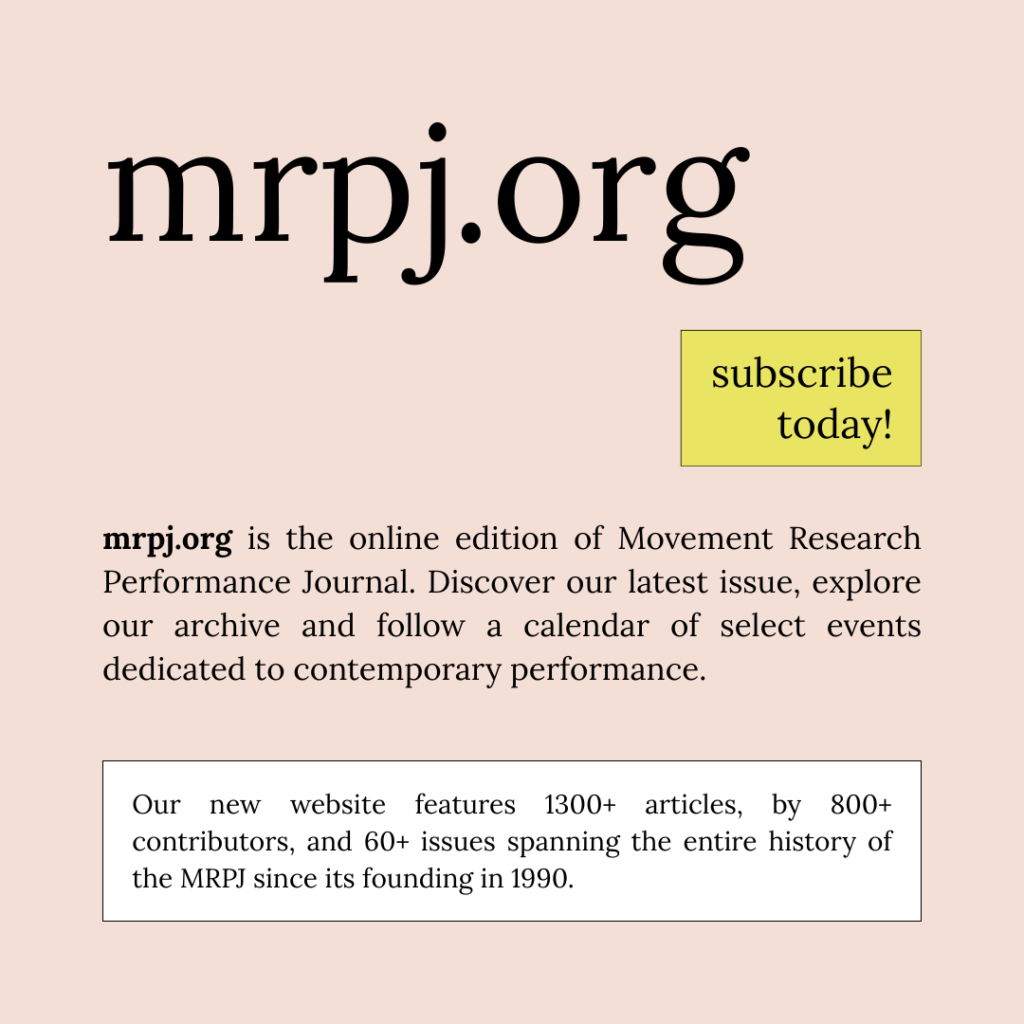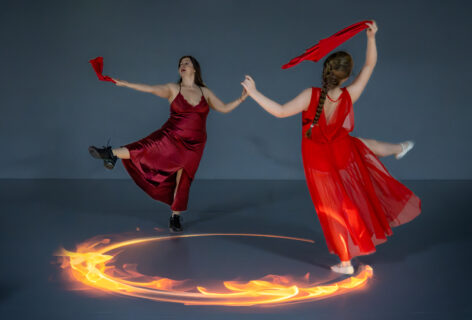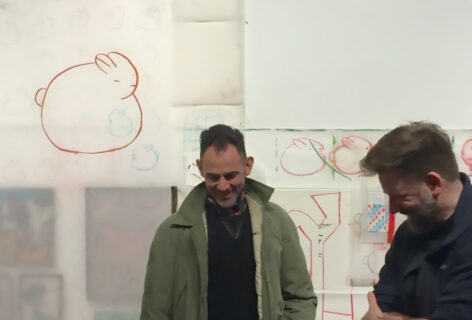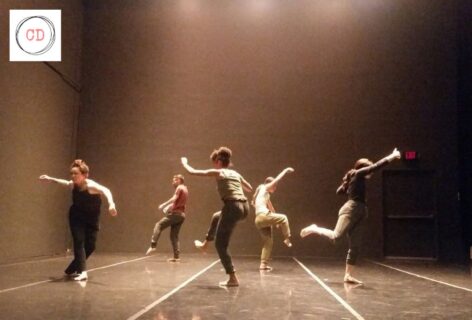Johanna Hedva: Neve Mazique-Bianco!!! You’re one of my favorite people of all time. I’m over the moon that we get to do this. Since we first met in 2015, we’ve been threatening to have a public conversation about sex and sexuality and, as you put it, “the development and creation of our sexual identities as they continue to emerge as disabled queer people of color with various kinds of trauma and magic in our pockets and up our sleeves.”
I want to know the first five words that come to mind when you think about sex.
Neve Mazique-Bianco: Johanna! You are one of my heroes and fairies, for real. I love meeting a kindred spirit in any form, and when we met at Sick Fest in Oakland and started talking, it was clear that’s what we were.
I love sex. Not even necessarily just having it, although I love that too. But I love watching it, I love hearing about it, I love the music and the dance it makes.
Five words which come to mind when I think about sex are: rocks, squelch, silk, cream, slap!
What would your five words be?
JH: My five words are: stardust, warzone, shapeshift, khoratic, and annihilation.
I love sex too, but I also find it obliterative. I mean, it just blasts me apart. I’m sent into the underworld, and the stratosphere, and the void right behind my head, and the realm of nothingness and music, and the land of dreams and fire and fury. All in a good way, of course, but I guess I’d make the distinction here between “pleasurable” and “good” not necessarily being in tandem, or begetting each other. There are forces in sex, and which sex summons, that go beyond basic ideas of pleasure = good and pain = bad. Sex for me is as mystical an act as it gets, and in mysticism, binaries like good/bad just fall away, and what matters is not how our bodies can feel only one thing, but how matter itself can transform and shape-shift and stretch in its capacity. Lol can you tell I have a shitload of planets in Scorpio in the 12th and 8th houses?

A portrait of NEVE. They smile broadly wearing fuchsia lipstick colour. They have dark shoulder length hair and brown smiling eyes and are wearing a black tank top. Their necklace has small turquoise and gold beads. Neve, TenderProvocations, Photo by Dorothea Tuch
NM-B: Once I was interviewed about disabled folks and our sexualities for the documentary, The Last Taboo, which I hate as a title. Why do you think that non-disabled people and disabled people find the intersection of disability and sexuality so taboo?
I’m pretty bored of it as a topic, the taboo-ness. I like to be frank about the stuff I love, but I’ve found that even just being a disabled person having a sexuality and making sexual artwork makes me an eligible subject for interviews in which I have to illuminate the mystery of how I came to possess an empowered sexuality.
Answer: it’s not a destination which lasts. I don’t live here. I am encircling my sexuality and the sexuality of others for all time, getting closer and further away and closer yet again.
JH: *snap snap* Yes! Whenever I see displays of straight, cis, and abled sexuality, I’m like, “how bizarre!” That’s taboo! The fact that any sex is still taboo is wild. Sex gets rated R while torture, murder, and gun violence get a PG-13 rating. The evening news shows you videos of black people being murdered while the whole world wags its finger when Janet Jackson’s nipple appears at the Superbowl.
Don’t you think that the bafflement at disabled people having a sexuality is an example of the same bullshit stuff that stems from the ableist bafflement at disabled people having bodies at all? I’ve always loved the title of your piece from Sick Fest: Incidentally, I Don’t Just Write About Bodies, I Have a Body Too.
NM-B: The bafflement other people have in response to our sexualities is bafflement about the existence of our bodies. I was rewatching the fun and terrible film Penelope the other day. It’s a fairy tale in which Christina Ricci has a pig nose and ears and even though she’s still very pretty and talented and rich, folks are afraid of her and she can’t find a husband. Her mother is very annoying and tells Penelope “You are not your nose.” In derision, Penelope says at one point, “Yes, I know, Mother, this is not my nose. I’m not my nose and I’m not me.” I think when I saw this as a teenager I must have related to that loneliness. The loneliness of folks telling you that you aren’t your body and your body isn’t yours, as if that should be reassuring.
Incidentally, I Don’t Just Write About Bodies, I Have a Body Too was a direct response to a trend I experienced where people were more interested in my writing than in my physical, choreographic, performance work—i.e., my body!
My body’s world is a queer, Black, POC, mixed race, nonbinary, disabled world. So I find the ignorance of my world, and sexualities informed by the ignorance of my world, bizarre!
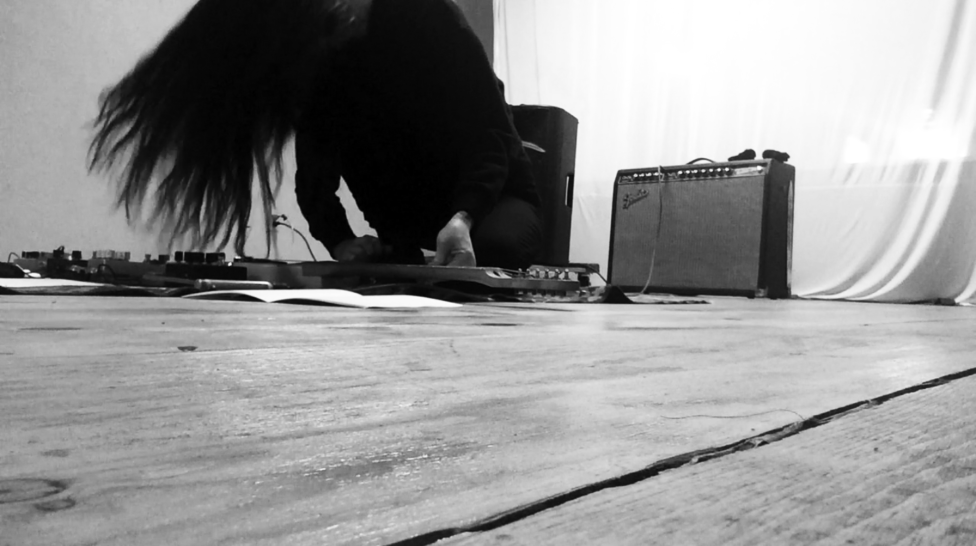
From Black Moon Lilith in Pisces in the 4th House. Shot at PAM, Highland Park, California. January 2019.
JH: What do you think about monsters and cyborgs as metaphors or symbols in/of crip life? Useful, not useful, generative, problematic? All of the above?
NM-B: I find cyborgs and monsters very useful. They were the focus of my studies in undergrad. I TA-ed a class at Hampshire College called “Alien Freak Monster: Race, Sex, and Otherness in Fantasy, Sci-Fi, and Horror,” and another class called “The Bioapparatus,” which was pretty much a class about cyborg art, and we focused a lot on work by Donna Haraway.
I love animals, and for a while, I would take great offence if folks included me in references to human beings. I still don’t see humanity as the measure of decency or goodness. I prefer non-human creatures. In the same sense that I find disabled sexuality very queer, I also find disabled sexuality a challenge to what things are considered “human nature” or “human rights.”
The character Rafael in your most recent book, On Hell, is trying to turn himself into a cyborg, perhaps his desire alone makes him a cyborg. I love how much he swears, particularly about sex. I relate to his sexual fantasy of his lover becoming a large black snake who just opens down the middle. I have a thing for tentacles and other articulate, squishy parts.
How do you relate to or are you excited by monsters and cyborgs?
JH: I’m a fan of monsters and cyborgs and mythological creatures as guides and role models for how to live and be. In On Hell, Rafael is living the dream.
I doubt humanity entirely. What a fucking canard. The way it is so limiting gets tangled up with gender for me. When I was a child I remember being so confused when people started referring to me as a girl, or even a human at all. I was like, “but I’m a dragon!” Or a mermaid, or a witch, or a sea serpent, or a shapeshifter with claws and scales one moment and feathers and three tongues the next.
That sounds like such a cool class! I find horror to be so generative for thinking about bodies. It really gets at how monsters are just ourselves. One of my all-time favorite essays is Colson Whitehead’s A Psychotronic Childhood, where he writes about growing up as a black kid in New York and obsessively watching B horror movies. The movies depicted society the way he and his family experienced it and led him to an understanding of the artist as a kind of monster. I always think of this quote from it: “A monster is a person who has stopped pretending,” but “an artist is a monster that thinks it is human.”
NM-B: I love Colson Whitehead! Did you know that his book The Underground Railroad is being adapted into a miniseries directed by Barry Jenkins (Moonlight)? Talk about a duo who understand sex, love, oppression, and monsters!
JH: This piece I’m doing for I Wanna Be With You Everywhere (at Performance Space New York) relies on horror quite a lot. I’m calling it a keening, which is a vocal lament for the dead, because it’s a grief ritual for my mother, who died last year. It’s called Black Moon Lilith in Pisces in the 4th House, which refers to an astrological signature that I share with my mother. I play guitar and sing, and the performance goes from stretches of noise, to earthy folk and blues songs, to long, ugly wailing and howling. Throughout it, I’ve found that I encounter and embody death in different ways. At the start I use the traditional folk song “O Death” to sort of confront death, as if I’m meeting Death on the road at night, having to look it in the face, and I’m begging it to account for why it took my mother. By the end, I’m embodying Death, somehow. In rehearsals, a crone voice emerged, and I couldn’t tell if it was my own voice, or my mother’s, or Death itself. I’ve worked to make the guitar match that voice, to have it sound like a banshee. I want it to sound like a wall, but a wall you can’t see. It should be terrifying but somehow very familiar, like you’re being recognized by an alien, which is to me the primary feeling that horror evokes.
What are you doing for I Wanna Be With You Everywhere?
NM-B: This gave me chills and brought the movement of water to my lower lids. Can we continue this question and answer format for an eventual book? Mamas, grief, monsters, aliens, crone voices. That’s basically what I’m doing too!
My piece for I Wanna Be With You Everywhere is an excerpt from my new contemporary dance musical/opera/play/epic poem/performance novel Lover of Low Creatures. It features a mother-daughter duo who are white and black, respectively, who run an animal hospital and sanctuary out of their home, and fight monsters with the help of ancestral allies, who might also be monsters. Two of the characters are Heqet, the Crone of all Crones, the ancient Egyptian one who begat the later Greek Hecate, who pagans honor as the mother of witchcraft, and the Black Dog, alternately Anubis and Papa Legba/Baron Samedi. There is a part where these characters introduce themselves and say, Black Dog: I am Death. Heqet: And I am the resurrection.
So much of the phrasing that has been used to add loft to puritanical and repressive monodeistic goals, originate from Pagan sources. I feel that way about sex. It’s been pushed so far out of the mainstream that any representation of it is a perversion, particularly expressions of the diversity of sexualities that exist. That’s why sexual abuse gets pushed so far under the rug, because nobody grows up free from shame, particularly sexual shame. Sex and abuse get conflated, love and abuse get conflated. My show is about parsing out the abuse from the love. Understanding the difference when you believe you are a monster come from monsters and you are not sure what you deserve.
Sometimes I get worried I will be known only for my work about sex, and if not sex, my work about trauma. Particularly sexual abuse. I joked with Tony the other night that my next piece should be an installation piece in which I am just in a room screaming intermittently. And folks can only view the piece through a series of peepholes. It will be called, “It’s Happening Again.” You can join me with your wailing!
I love you.
JH: Oh dude I can’t wait to see this. And yes, I will definitely join you in wailing. I love you too.


